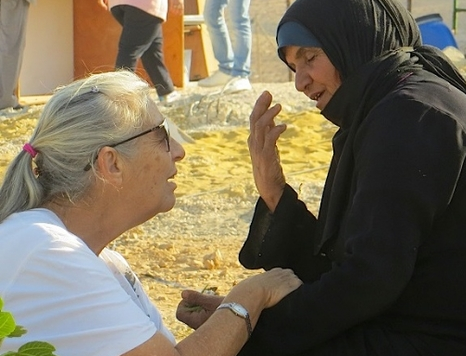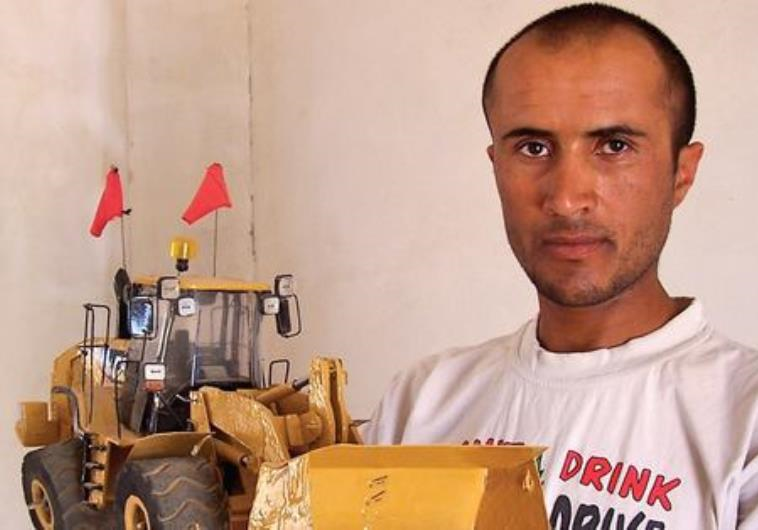Umm Al-Khayr Villagers Assert Their Right to Remain
UPDATE: the URGENT ACTION to keep 2 homes and a soccer Field standing succeeded!
Demolition orders are currently frozen by order of the High Court of Israel
NEW REGULATIONS PUT PALESTINIANS AT GREATER RISK OF HOME DEMOLITION
a Stay Human Conference Call with Congress
Click here to register
TUESDAY, MARCH 3rd
TIME: 9:45 AM PACIFIC/ 10:45AM MOUNTAIN/ 11:45AM CENTRAL/
12:45PM EASTERN/ 7:45PM JERUSALEM
Speakers:
Attorney Raffoul Rofa, Director of the Society of St. Yves Catholic Center for Human Rights
Aziz, Villager of Um Al Kheir
Hamed Qawasmeh, UN Office of the High Commissioner for Human Right in Hebron & Villages Group
Erella Dun,Villages Group
Last week, the villagers of Um Al Kheir received demolition orders and, together with their lawyer, scrambled to petition the High Court of Israel to stop imminent demolition. It worked. But what happens next time? In February, 2015, Society of St. Yves raised the alarm: the Israeli Civil Administration issued dangerous new rules making it even harder to save Palestinian homes and villages from demolition.
Background: Instead of approving the master plans developed by Palestinian towns and villages, and acknowledging their right to issue building permits (required by the Oslo Accords), the Israeli Government has issued over 12,500 demolition orders in Area C and in the 62% of the Occupied West Bank administered by Israel. There is no safety-net. When their home is demolished, Palestinian families lose everything. In addition, villagers in Umm Al Kheir face the threat of settler violence. Here is a video made available by Rabbis for Human Rights
________________
Umm Al- Khair Villagers: Affirm Their Right To Remain
The Conference call on January 16th, 2015 Featured
Hamed Qawasmeh, UN Office of the High Commissioner for Human Right in Hebron and
Eid Suleiman Hadaleen, resident of Umm al-Khair and renowned artist
"I am afraid. This threat from the government and the civil administration to move us to other places is very dangerous. I’m also afraid of the Palestinian community. If we find ourselves annexed onto an existing Palestinian village or town, we will pay dearly for it. The people there will have jobs, but we will have nothing. Bedouin are farming people, and if you move us, we lose our land, our animals and our grazing areas. We will lose everything and be thrown into a place where nothing belongs to us. We are already poor, but this will make our suffering much worse than before. It will be catastrophic for the community. I don’t even want to think about it. I want to stay here."
-Na'ama Hadaleen, wife of Eid Suleiman Hadaleen
About umm al-khair
Umm al-Khair is one of many Bedouin villages in the south of the West Bank that is at risk of home demolitions and forced relocation due to settlement expansion in Area C - in this case, the Israeli settlement called Karmel. Umm al-Khair was recently visited by a member of the US concilate amidst growing concerns for the well-being and human rights of its residents, but this faint diplomatic interest is not enough. We are inviting you to listen to the conference call recorded on Jan 16th, 2015 to learn from our speakers about the current status of Umm al-Khair and the lives of its residents. We will also have a follow-up call that includes congressional staffers.
The past few years were exceptionally hard for 125 registered refugees living in the community, who live on land to which they hold titles. Starting October 31st, 2008, Israeli forces demolished a number of residential buildings in the community due to proximity to the settlement. Despite the efforts of lawyers, activists, international NGO’s and residents to stop it, the settlement continues to expand and take over the legally owned land that Bedouin farmers use to graze their sheep, which makes up nearly 70% of the economy of the village. Against the odds, residents are planting a thyme farm to earn enough money to pay for a kindergarten and assert their right to remain in land that they have legal title to. In addition to many homes being demolished, bulldozers now target the traditional taboun oven, which bakes the much needed bread for village residents. Demolitions continued in 2010, 2011, and 2013, and most recently three demolitions on October 27th and 28, 2014. Sadly, these demolitions were followed by the confiscation of tents donated by the International Committee of the Red Cross and Ministry of Local Governments on November 1, 2014, despite their being the only shelters left for displaced residents. Help bring an end to the madness. Help bring a voice to the people of Umm Al Khair.
OUR Speakers
Hamed Qawasmeh:
UN Office of the High Commissioner for Human Rights in Hebron
Hamed Qawasmeh is a member of the Villages Group and represents the Hebron and Bethlehem Governorates for the UN’s Office of the Higher Commissioner for Human Rights. Born in Kuwait and raised in the Persian Gulf, he moved to the United States to continue his education, finished his BA in Mathematics and MA in Political Science, then moved back to Palestine in 1997, and received a 2nd Masters in International Business Administration at Bar Ilan University. Before joining the UNHCR four and a half years ago, he worked with the UN’s Office for the Coordination of Humanitarian Affairs (OCHA) in the same geographical area. He also runs an all-volunteer organization called the Hebron International Resources Network (HIRN)) that works closely with the most vulnerable communities in the Hebron and Bethlehem Governorates.
eid suleiman hadaleen
Eid Suleiman Hadaleen is a self-taught artist from the Palestinian Bedouin village of Umm al-Khair. From a very early age, Eid has been building miniature sized jeeps, bulldozers, and helicopters from scrap materials found in his village. He is a member of the Saaheb Collective, a group of friends and artists from the south Hebron hills who use art and creativity to bring about social change. Eid creates miniature versions of the “vehicles of occupation”, including bulldozers which have demolished his family’s home twice, and describes how each could instead be used for good. Despite limited access to the internet, Eid’s story has been told in a short award-winning documentary and on his website, at https://eidworkshop.wordpress.com/. The artists in the collective believe in the power of art "as a tool for resistance, a tool through which alternative realities can exist, even for a short moment, in a context of violent conflict."










